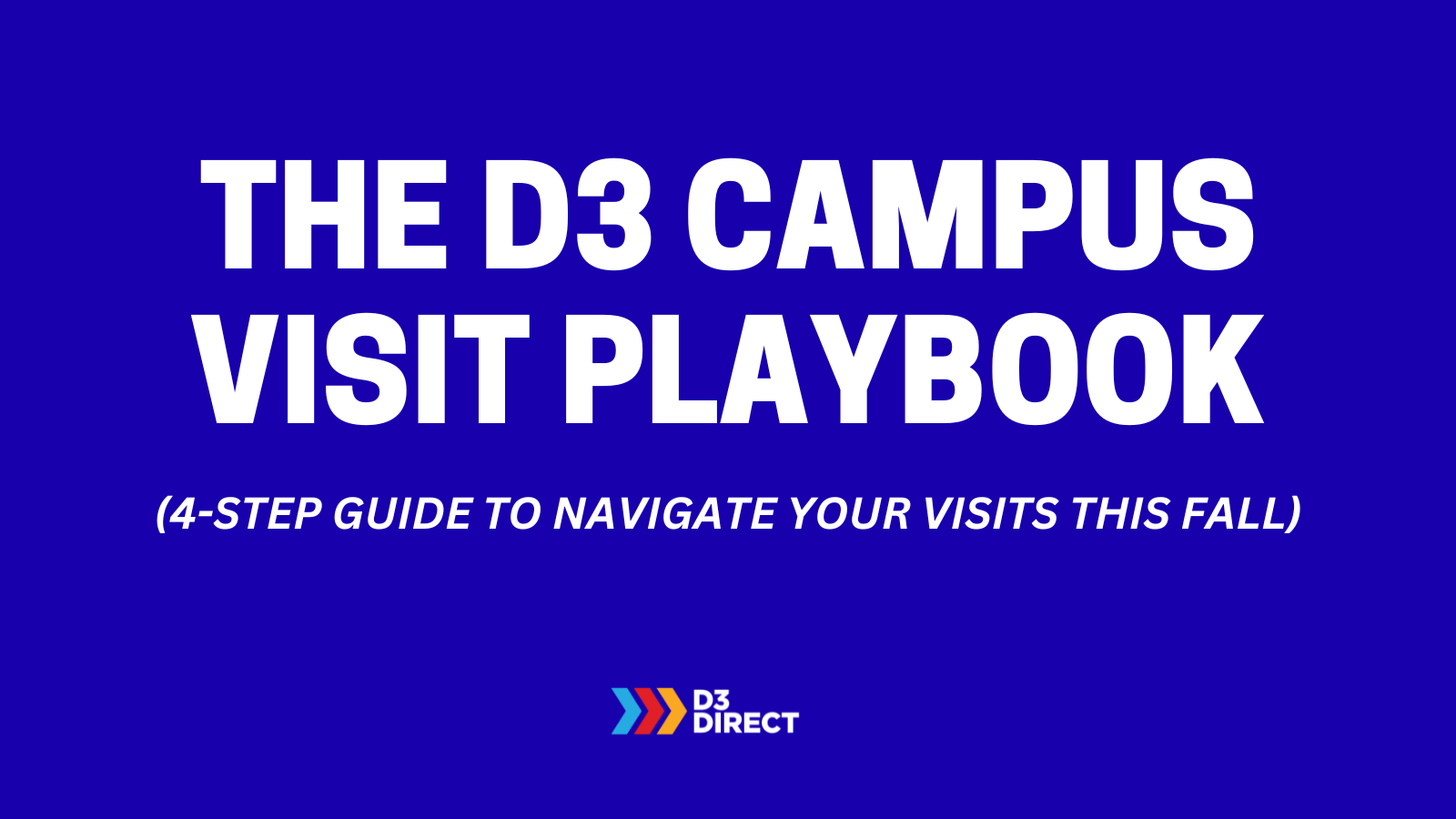D3 Campus Visits: What Every Family Should Know
A 4-step guide to successfully navigate your visits this Fall
For college sports recruits, the campus visit is a vital step.
No one’s committing to anything yet, but both you and the college coaching staff are getting serious about determining if this could be the right fit.
Unlike official visits (where schools cover the costs), unofficial visits are on your dime (more on this in a future newsletter).
But here’s the kicker: Unofficial visits are often one of the most important steps in the recruiting process.
Why? Because this is where a prospective college athlete can:
Test-drive the campus: Can you see yourself living here for 4 years?
Size up team culture: Are players just teammates or potential life-long friends?
Demonstrate interest: Coaches want athletes who want them back.
The truth is, it is very challenging to evaluate whether or not you’ll like a college or university without setting foot on campus. Sure, you can look at D3 School rankings or hear from former D3 student-athletes, but there is nothing like experience it for yourself.
With that in mind, here are four steps all recruits should take while on campus for visits:
Your 4-Step Campus Visit Playbook
Book Early & Confirm
Email the college coaches on your list, share your availability, and lock in a time. It’s an added bonus if you can let them know what you’re excited to see on campus or a class you’d be interested in attending.This could be a class in a subject you’re considering majoring in or just an on-campus event that you found ahead of time. Either way, having something specific to bring up will 100% separate you from other recruits in your class.
Prep Your Questions
Think beyond sports.We say this to recruits all the time, but as a reminder - you are going to college for more than athletics.
Ask the coaches you speak with about team culture, practice/rest balance, and how athletes manage their time with academics and other commitments. Here are some example questions to ask coaches.
Be Observant
Notice things like a team’s locker room vibes, how existing players interact with their coaches, even the attitudes from other students in the dining hall — it all matters.This will be your best indication of what life will be like as a student.
Pro Tip: Take time to write down your thoughts during the visit or soon after you get home so you have an objective record to compare to other visits. If you want guidance on how to do this, just let us know and we can help you think of some categories.
Follow Up
Send a thank-you note to the Coach and any players you interacted with.Keep it short but specific: Mention one highlight from your visit that stuck with you. If you really want to stand out, skip email and send a handwritten note. After speaking with tons of D3 coaches, we guarantee that this will put you in a very small (but noticed) group of recruits.
Translation: No one sends notes, so coaches remember recruits that do!
Final Thoughts
Don’t treat your campus visits like a tour for any student. This is a chance to get an unvarnished look at what life will be like as a college athlete AND a student.
And remember, D3 Coaches are watching to see how engaged you are. So put away your phone and make sure to show up prepared, attentive, and curious. With a good first impression on your unofficial visit, you can get on the fast track for a college offer.


